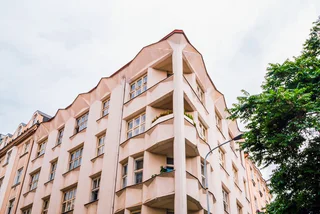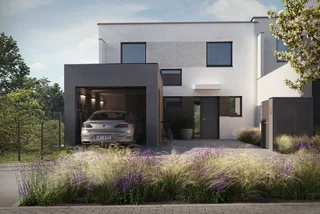The Czech government has launched an affordable housing program, offering specific parameters to support the construction of affordable rental housing.
In the first phase, the state will provide CZK 8 billion in preferential loans for the construction of apartments with rents lower than the market average, announced Prime Minister Petr Fiala (ODS), Finance Minister Zbyněk Stanjura (ODS), and Regional Development Minister Ivan Bartoš (Pirates) at a press conference Monday.
The government has set aside approximately 200 plots of land for municipalities, which they can apply for free of charge if they build affordable rental apartments. Simultaneously, the Ministry of Finance has launched a price map recording rental rates in apartments by cadastral territory.
"Housing that people can afford is one of my priorities and one of the prerequisites for the restart of the Czech Republic. To provide affordable housing, we must build enough apartments," said PM Fiala, adding that the first such apartments will be ready within three years.
Defining affordable housing
The program aims to make housing accessible for young families, seniors, and others in need. Eligible tenants must not own other real estate except public service professions like healthcare workers and police. Rents will be capped below market rates, with annual increases limited to the inflation rate up to 4 percent.
Subsidized housing is intended for four target groups: all households except the richest 20 percent, young people under 35 who are not among the wealthiest 10 percent, public service professionals such as healthcare workers, police and social workers, and victims of domestic violence. However, the ministers stated that there will be no binding rules, and municipalities can determine beneficiaries.
"Housing must also be available for people with regular incomes who have not inherited a house and cannot afford a mortgage due to high real estate prices or simply do not want to buy their apartment now. These are, for example, young families with children in which the parents are just starting their careers," said Bartoš.
State, regions, and cities to cooperate with private capital
Municipalities could build with state support or in partnership with private investors. Alternatively, private investors could construct affordable rental housing in agreement with the city. Another option is for municipalities to purchase existing buildings for their housing fund.
Starting in September, the State Investment Support Fund (SFPI) will offer the Affordable Housing program, with CZK 4.5 billion available for preferential loans. Next year, the National Development Bank will join with CZK 3.5 billion. The majority of the funds come from the National Recovery Plan, supplemented by resources from the state budget and the private sector. The overall investment in apartment construction is projected to increase to CZK 20 billion.
SFPI support can be used for new buildings, modifications, or extensions. Up to 40 percent of the total cost can be covered immediately, with a subsequent subsidized loan of up to 65 percent of the project price. Subsidies and favorable loans could cover up to 90 percent of the investment, with a maturity of up to 30 years and free early repayment.
The ministers did not want to predict when the Housing Support Act, which the cabinet interrupted in mid-May, would be discussed again. They explained that the coalition is debating the individual parameters of the law, and Prime Minister Fiala expects it to be approved by the government by the end of June.
The law should create systemic support for people at risk of housing shortages, including establishing contact and counseling centers and guarantees for private landlords who set aside housing for vulnerable groups.












 Reading time: 3 minutes
Reading time: 3 minutes 






























